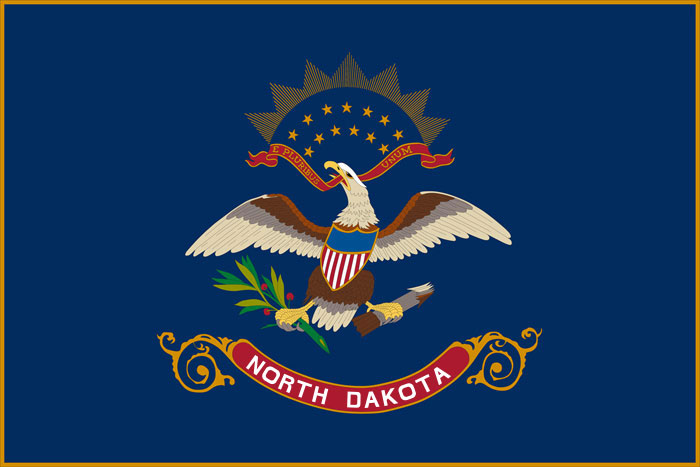Discrimination means treating someone differently because of a particular characteristic such as race, color, sex, gender identity, sexual orientation, age, disability, or religion. North Dakota Department of Health and Human Services (HHS) makes available all services and assistance without regard to race, color, sex, gender identity, sexual orientation, age, disability, national origin, religion, or status with respect to marriage or public assistance. For programs funded by the U.S. Department of Agriculture (USDA), HHS also makes services and assistance available without regard to political beliefs. These laws must be followed by persons who contract with or receive funds to provide services for HHS, including the state's eight regional Human Service Centers, the State Hospital, the Life Skills and Transition Center, and Human Service Zone offices.
The policies of HHS also require that:
- You be given the chance to apply for assistance or services, or both.
- The same eligibility standards apply to you as apply to others in similar situations.
In accordance with Federal law, the U.S. Department of Health and Human Services (US HHS) policy, and North Dakota state law, HHS is prohibited from discriminating on the basis of race, color, sex, including gender identity and sexual orientation, age, disability, national origin, religion, or status with respect to marriage or public assistance. In accordance with the USDA, HHS is also prohibited from discriminating against political beliefs or reprisal or retaliation for prior civil rights activity in any program or activity conducted or funded by the USDA.
What do I do if someone has discriminated against me?
You may file a written complaint if you believe you have been discriminated against because of race, color, sex, including gender identity and sexual orientation, age, disability, national origin, religion, or status with respect to marriage or public assistance, in accordance with Title VI of the Civil Rights Act, Section 504 of the Rehabilitation Act, the Age Discrimination Act, the Americans with Disabilities Act, and the North Dakota Human Rights Act, or if you believe you have been discriminated against because of your political beliefs, in violation of USDA policy.
- Civil Rights Complaint Form SFN 143 (387kb pdf)
The Civil Rights Attorney and Civil Rights Officer work together to prevent and eliminate discrimination against individuals in the delivery of programs and services administered and supervised by HHS and to make all programs and activities accessible to people with disabilities.
Where do I file a complaint?
Persons who need accommodations or have questions related to discrimination and the delivery of human services may contact any of the following offices. Written complaints may be filed with your local Human Service Zone or any of the following:
Legal Division
Department of Health and Human Services
600 E. Boulevard Ave, Dept 325
Bismarck, ND 58505-0250
Phone: (701) 328-2311 or 1-800-472-2622
TTY: 711
Fax: (701) 328-2173
Email: dhslau@nd.gov
* U.S. Department of Health & Human Services
Office for Civil Rights, Region VIII
1961 Stout Street, Room 1185
Denver, CO 80294-3538
Phone: 1 (800) 368-1019
TTY: 1 (800) 537-7697
Fax: (202) 619-3818
Email: ocrcomplaint@hhs.gov
* Central Case Management Operations
U.S. Department of Health & Human Services
200 Independence Avenue SW
Room 509-F HHH Bldg
Washington, DC 20201
Phone: 1 (800) 368-1019
TTY: 1 (800) 537-7697
Fax: 202-619-3437
Email: ocrcomplaint@hhs.gov
* + U.S. Department of Agriculture
Office of the Assistant Secretary for Civil Rights
1400 Independence Avenue SW STOP 9410
Washington, DC 20250-9410
Phone: 1 (866) 632-9992
TTY: 1 (800) 877-8339
Fax: (202) 690-7442
Email: program.intake@usda.gov
* State and local agencies are required to comply with the North Dakota Human Rights Laws that prohibit discrimination based on "status with respect to marriage or public assistance." Federal agencies are not required to investigate complaints based on the North Dakota Human Rights Laws.
+ Under USDA policy, discrimination is also prohibited on the basis of political beliefs.
When should I file a complaint?
The complaint must be filed within 180 days of the incident. Include in your complaint the nature of the discrimination, where and when it took place, who discriminated against you, and all other important facts. Remember to date the form and sign your name.
What happens when I file a complaint with the HHS Program Civil Rights Office?
The HHS Civil Rights Office will determine if the nature of the complaint is within its jurisdiction. If the complaint is within the jurisdiction of the agency, an investigation will be conducted, and you will know the outcome of the complaint within 60 business days of when it was filed. If the complaint is not within the jurisdiction of the agency, you will receive a letter. If you file your complaint with another agency, they will notify you according to their policies.

